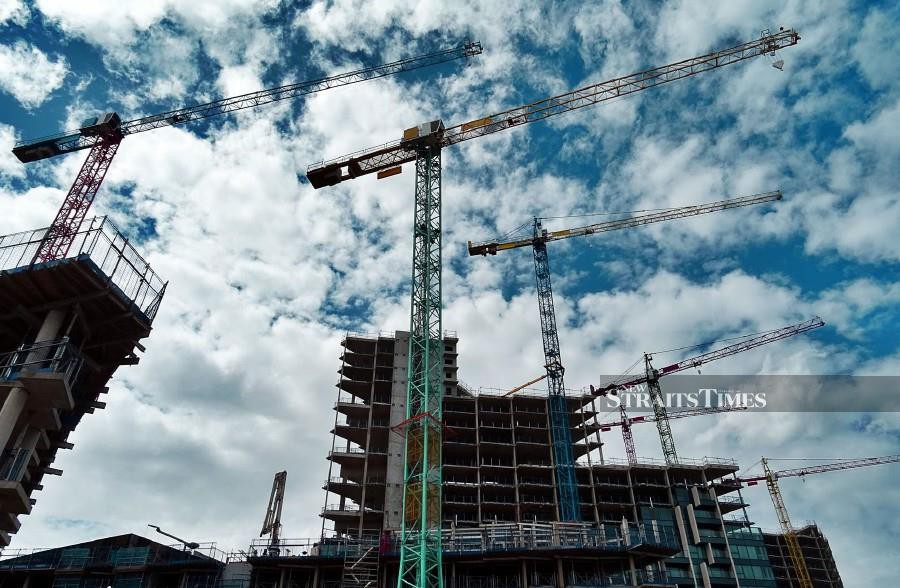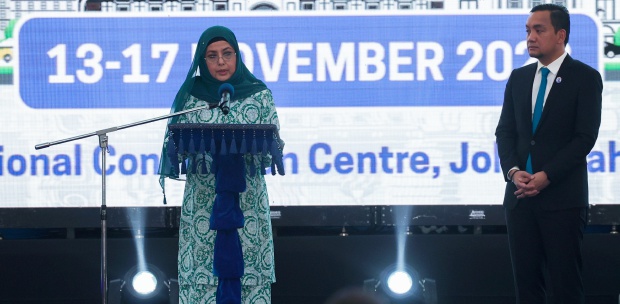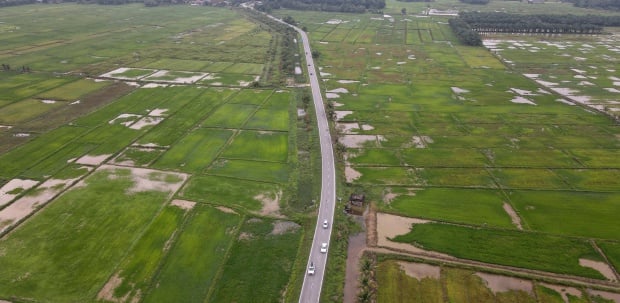It could have been a good opportunity to showcase how Malaysia is going to "build forward better" by tackling head on the challenge of rebuilding a new economy by embracing green development and climate action.
I am referring to the keynote speech Prime Minister Tan Sri Muhyiddin Yassin made on May 20 at Nikkei 26th International Conference on the Future of Asia.
He focused on three main challenges that the nations in the region are facing in rebuilding their economies while also strengthening the resilience of their societies, namely equitable health access, socioeconomic injustice and global leadership.
He rightly criticised the current ways economic progress was measured, saying that "GDP growth should not be viewed as an end in itself" and proposing "a new dashboard of metrics to assess a society's health, such as measures of inequality and economic vulnerability or whether growth is financially and environmentally sustainable; needs to be promoted as part of the recoupling of economic growth and social equity".
On sustainability and climate change, he rightly said that "Asia has to take in the bigger picture that there are many other things impacting humanity, such as inequality and climate change, and only by placing humanity, sustainability and justice at the core of the global response can we hope to effectively tackle Covid-19 and other existential threats. This is only possible by strengthening and revitalising the multilateral system".
Those hoping that Malaysia will revert its approach to climate change by endorsing new ambitious carbon emission targets should remain optimistic because the country has set up an array of new institutions like Malaysian Climate Change Action Council and the Shared Prosperity Action Council with the Shared Prosperity Delivery Unit.
Nevertheless, we also need to ensure that all types of advocacy efforts towards new ambitious plans not only continue remaining steadfast but also re-double their efforts. For example, the "Economic and Social Survey of Asia and the Pacific 2021: Towards post Covid-19 Resilient Economies" that was recently released by the United Nations
Economic and Social Commission for Asia and the Pacific (UN-ESCAP).
Such a concept is driven by the assumption that only ambitious green recovery coupled with a strong climate action, can truly deliver inclusion and an economic model that is guided by long- term considerations rather than the "short-termism" of the current global framework.
"As we navigate our way out of this shock, the policy choices we make now should be green, just and sustainable in order to build long-term resilience and reduce the severity of future shocks," shares UN secretary-general
António Guterres in his Foreword to the Outlook.
Financing is going to be a big concern, but the Outlook deals with constrained financial space that many countries have to cope with while trying to find new resources to finance this paradigm change in net neutral driven policy making.
Just last week, two other major reports were launched — the
ESCAP and UNEP's Report on SDG7 Localization: Affordable and Clean Energy and Accelerating Renewables in Cities, a joint venture between UN-ESCAP, UN Environment Programme and REN21.
Both call for localisation, empowering cities administrations to accelerate sustainable energy transition, something that will require what experts call "integrated urban system partnerships".
Local city administrations like Iskandar, Putrajaya, Penang and Subang Jaya understand the issues at play here because they are pioneers in practices that localise more effective energy creation and consumption.
So, what are their real challenges, achievements that could be replicated and lessons learned? How can they do better if there was more support from the federal government?
These are hard questions to respond, but the same optimism Malaysia should hold for a better future is making me believe that Muhyiddin will soon use his next keynote speech to enable a national conversation that will try to find the right transformational answers.
The author writes on social inclusion, youth development, regional integration and the SDGs in the context of Asia Pacific






